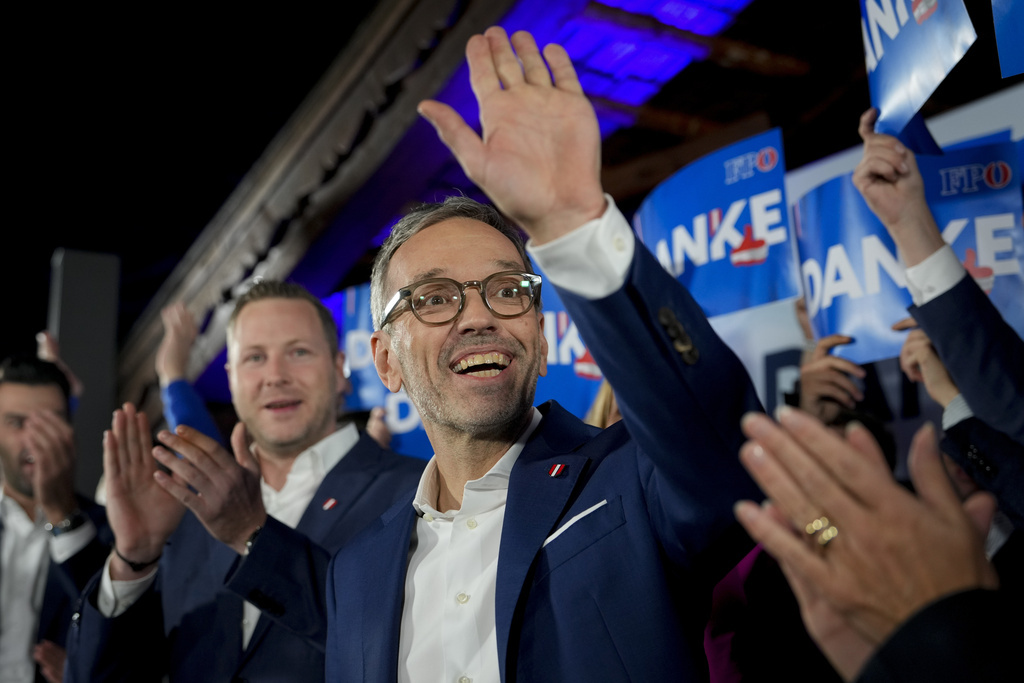The Freedom Party of Austria (FPÖ) won a historic victory Sunday evening, winning a record 28.8 percent of the vote. However, the anti-immigration party, also known for its opposition to sanctions on Russia, will face difficulty in forming a government, with coalition talks expected to drag on, possibly for months.
Several records were broken in Sunday’s national election, with the FPÖ scoring its highest-ever result, with 28.8 percent of the vote, a record increase of 12.6 percentage points. Meanwhile, the center-right Austrian People’s Party (ÖVP) suffered a historic loss of around 11 percentage points, leaving the party coming in second behind the FPÖ. The left-liberal SPÖ slipped to third place for the first time.
Opinion researcher Christoph Haselmayer said the FPÖ’s result is “doubly historic,” adding that “for the first time in a National Council election, the FPÖ is in first place and has surpassed the FPÖ-Haider result from 1999.”
Serving Chancellor Nehammer may not have won, but his ÖVP remains the kingmaker.
The decisive factor now will be how things continue in the SPÖ. “ÖVP leader Karl Nehammer will try everything to forge a three-party coalition. The NEOs are ready with an uncertainty factor in the SPÖ.”
One of the main mouthpieces of the Brussels elite, Politico, writes: “If the FPÖ succeeds in building a coalition, the European Union would be faced with a Euroskeptic populist bloc encompassing Austria, Hungary and Slovakia, and possibly the Czech Republic after an election there next year.”
After the National Council election on Sunday, it could take a very long time for a new government to be formed, expects political consultant Thomas Hofer. “The Federal President will not give a clear mandate to form a government before the official final result. He will give the parties time to get organized. The result was a shock for the ÖVP and SPÖ.”
Kickl is well known to be a close ally of Hungary’s Viktor Orbán, and unlike other European right-wing leaders, Kickl is seen as someone who can’t be bought off. Hungarian media outlet Magyar Nemzet therefore writes that it is unlikely he will be able to rule in a coalition.
“There will probably be a grand coalition in Austria because the elite cannot allowKickl to come to power. They hate Kickl because he would really clean up and drain the swamp, and they can’t allow that,” said Zoltán Kiszelly, director of political analysis at the Századvég Public Knowledge Center Foundation.
There have also been statements before the election that Nehammer may consider a coalition with the FPÖ without Kickl, but it is unlikely with the historic result that Kickl will step away.
“There is no FPÖ without Kickl,” said Kiszelly.
“The parties critical of the system are forced to make a deal with the elite if they want to get into government. We saw this in the Netherlands, but also in Italy, Denmark, Finland and Sweden. In Germany, the AfD and the FPÖ in Austria, on the other hand, have leaders who do not want to make a deal, so they are persecuted,” he added.






